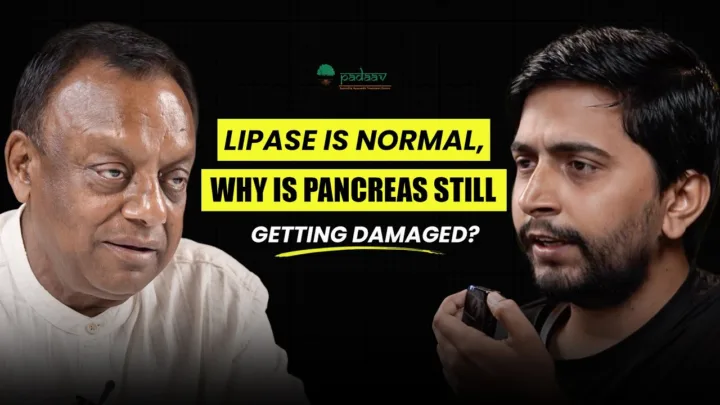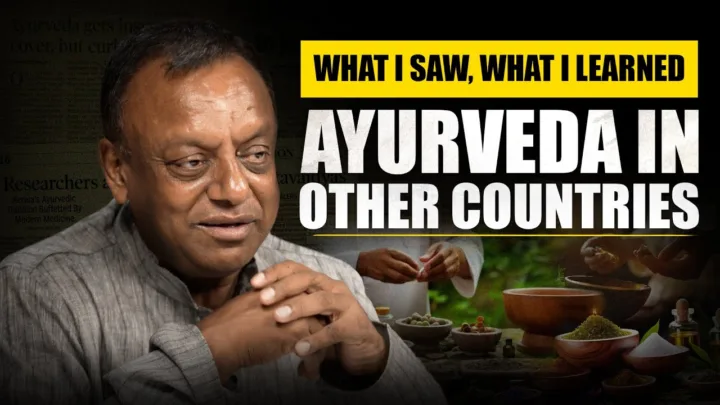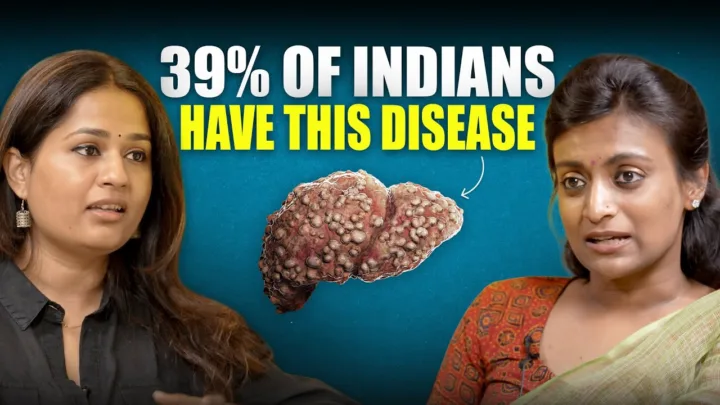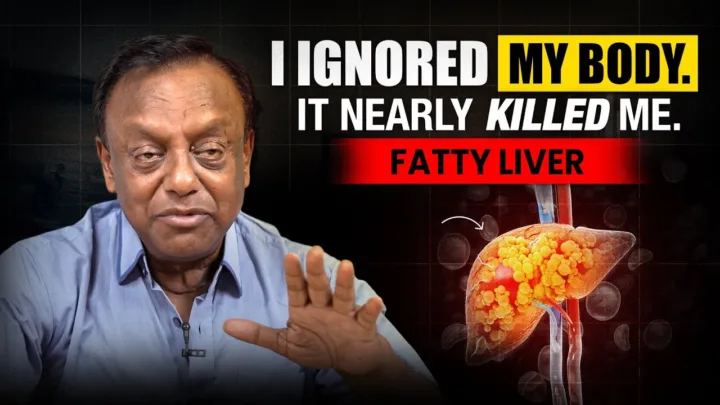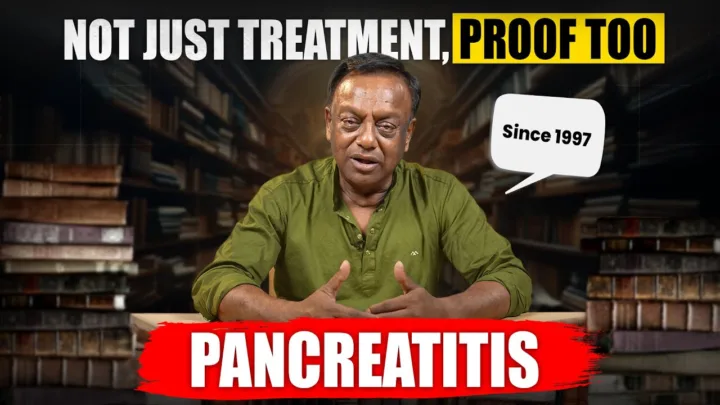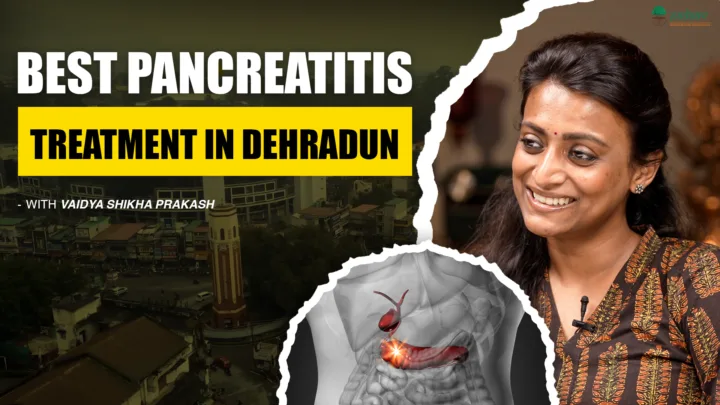The journey of Padma Shree Vaidya Balendu Prakash, a renowned practitioner of Ayurveda, is a compelling narrative about the necessity of research, data, and scientific rigor in advancing traditional medicine. For decades, his work on complex, “incurable” diseases like pancreatitis has been driven by a simple, yet profound, question: Why is this happening, and how can we prove our results?
The Birth of a Researcher: From Mendel to Mentorship
Vaidya Balendu Prakash’s interest in scientific documentation stems from an unexpected place: the work of Gregor Mendel, the father of genetics. While Ayurveda traditionally relies on ancient texts and intuitive knowledge, Vaidya Prakash recognized the universal power of observation and data tabulation.
- The Idea of Documentation: In contrast to the traditional, faith-based approach of many practitioners who lacked concrete data, Vaidya Prakash decided to document his father’s medical practice. He saw patients getting better for certain diseases but noticed that this data was not recorded.
- The Eklavya Principle: Taking Mendel neither a countryman nor from his religion as his ideal mentor, he meticulously began archiving patient records even before starting his Bachelor of Ayurvedic Medicine and Surgery (B.A.M.S.) degree.
- The Result: A Legacy of Data: Starting in January 1997, he began tracking pancreatitis cases. Today, in August 2025, Padaav Ayurveda holds a clinical database of over 2,300 pancreatitis patients, a profound resource that has become their research bedrock.
Vaidya Prakash asserts that merely collecting data is research itself. Tabulating and analyzing this data is the path forward, allowing Ayurveda to be established on a global stage for treating diseases like pancreatitis.
Clinical Breakthroughs: The Power of Patient Data
The data collected at Padaav Ayurveda has produced impressive, statistically significant outcomes in managing pancreatitis:
| Outcome Parameter | Reduction Rate | Significance |
| Emergency Attacks | 92% | A massive reduction in life-threatening episodes. |
| Hospitalizations | 95% | Significantly lowers the financial and physical burden on patients. |
Vaidya Prakash states that these statistics are their most valuable “asset,” proving the efficacy of their research-based approach and providing hope to thousands suffering from this debilitating disease.
The Pursuit of Scientific Validation
Vaidya Prakash’s journey has involved relentless efforts to subject his Ayurvedic formulations to rigorous modern scientific scrutiny.
- The Blood Cancer Pilot: An early, focused observation on blood cancer showed that specific types of patients were responding to a silver-based Ayurvedic medicine. After 14 years of perseverance, he secured and completed a pilot study where 11 out of 11 patients were successfully treated. Though the project was a success, the underlying science—how a medicine made of silver works in the body—remained a mystery, leading to years of frustration.
- A New Hope and the ‘Jai Anusandhan’ Slogan: Disillusioned, Vaidya Prakash had abandoned clinical practice by 2012. However, the Prime Minister’s 2014 slogan, “Jai Jawan, Jai Kisan, Jai Vigyan, aur Jai Anusandhan” (Hail the Soldier, Hail the Farmer, Hail Science, and Hail Research), reignited his commitment.
- The Pancreatitis Conference (2014): He organized a major conference, presenting his case studies to experts from AIIMS, ICMR, and environmentalists. The challenge was simple: Who doesn’t want people to get well? This led to the Chief Minister sanctioning funds for a research project to develop the copper-based medicine as a New Clinical Entity.
- The Discovery of Nanotechnology: Working with the Indian Institute of Science, he made a groundbreaking discovery: the classical Ayurvedic formulation, made from copper, mercury, and sulfur (तांबा, पारा, गंदक), contained no detectable metal in its final form. The metals had transformed into nanoparticles or minerals.
The Road Ahead: Establishing Ayurveda as Mainstream Science
The current work at Padaav Ayurveda is focused on the next crucial step: Proof of Efficacy.
- Randomized Controlled Trial (RCT): Vaidya Prakash is currently working on setting up an ethical, randomized controlled trial in collaboration with a large South Indian hospital. The aim is to compare the Ayurvedic group (receiving the Padaav medicine) with an allopathic group to scientifically prove the superiority of the Ayurvedic approach, especially in reducing attacks and hospitalizations.
- Attracting Genius: The ultimate motivation is not personal reward, but to elevate the status of Ayurveda. Vaidya Prakash notes that today, the best minds are often not entering Ayurvedic colleges. By providing a living example of scientific success—solving a disease the world calls incurable—he hopes to attract “genius brains” into the field, leading to further scientific exploration and global benefit.
- The Newtons of Ayurveda: Just as Isaac Newton observed a falling apple and developed the laws of gravity, Vaidya Prakash’s research came from observing what was already happening in his father’s practice. He is continuing this process of observation-based inquiry, working with institutions like UPES Dehradun, to uncover the science behind his formulations and establish a new clinical entity for the world.

